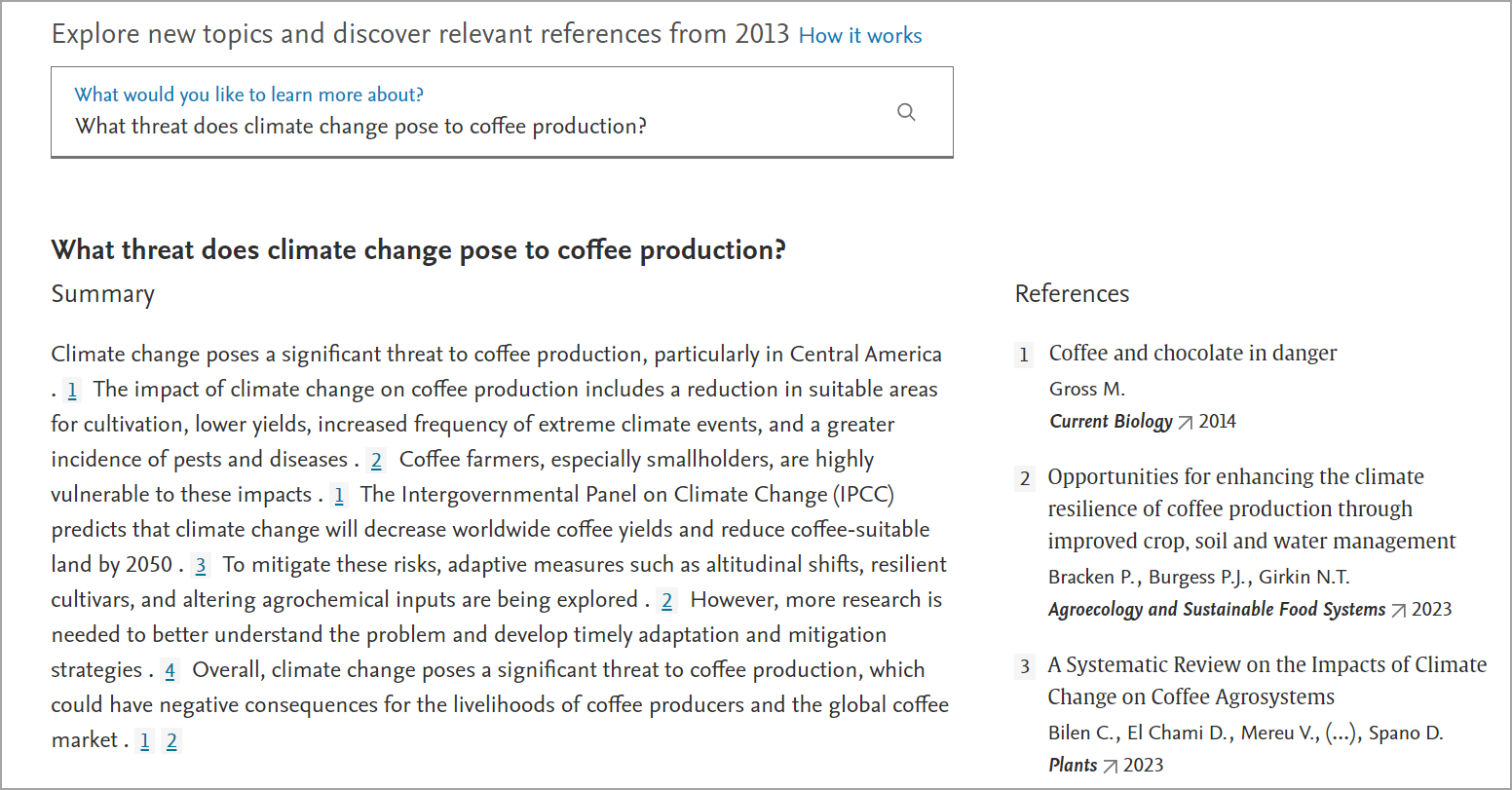An in-depth exploration of Scopus AI - webinar recording available for viewing
After extensive testing and feedback from the research community, Scopus AI, Elsevier’s new AI-powered research companion, is available for institutions to purchase. Scopus AI allows you to navigate through the vast expanse of human knowledge faster with a trusted guide designed to enhance your understanding, enrich your insights, and transform your overall research experience.
The recording of our webinar from January 29, 2024 is available for viewing.
Click here to access the recording
In this webinar you will discover how researchers are effectively utilizing Gen AI throughout the research journey and learn practical ways to leverage our Gen AI-informed results for an accelerated search process. Scopus AI is an intuitive and intelligent search tool powered by generative AI (Gen AI) that delivers insights with unprecedented speed and clarity. By leveraging the high-quality, curated content in the Scopus database, Scopus AI helps researchers:
- Navigate unfamiliar academic fields
- Support greater multidisciplinary collaboration
- Increase the impact of their work
When users submit a query, Scopus AI searches the abstracts of documents in Scopus, Elsevier’s source-neutral and curated abstract and citation database, for relevant terms. It then synthesizes the key points in those abstracts into an easy-to-follow summary, with references, in seconds.
Scopus AI also has several features that underpin its commitment to vetted sourcing and improve your research efficiency, such as:
- Trusted sources: reduce risk with verified sources via Scopus, limiting bias and avoiding hallucinations
- Summaries: query and distill trusted summaries in seconds
- Foundational papers: rapidly pinpoint seminal works by academic progress and impact
- Topic experts: identify experts by field relevance
- Concept maps: visualize links between research concepts and discover new connections
Unlike other AI tools, our advanced prompt engineering limits the risk of hallucinations — or false AI-generated information — by tapping into the trustworthy and verified knowledge from Scopus, the world’s largest database of curated scientific literature. This ensures users get the most comprehensive and reliable answers possible.
Scopus also uses natural language processing. That means users don’t have to worry about matching specific keywords or Boolean operators; instead, they can just type in their question, statement or hypothetical using everyday language. Scopus AI then locates relevant documents published since 2013 and synthesizes the content of their abstracts to create an instant, easy-to-follow and (importantly) referenced summary of the information you are seeking.


